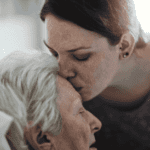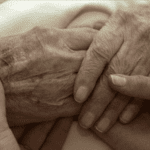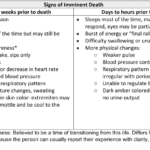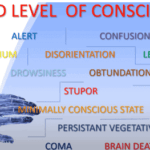Category: Transitioning
Articles that discuss the transitioning phase of the dying process that precedes the actively dying stage before death.
Articles that discuss the transitioning phase of the dying process that precedes the actively dying stage before death.

Navigating the complexities of end-of-life care can be challenging. This article delves into the nuances of terminal agitation and terminal restlessness, providing caregivers and family members with the essential knowledge to better understand and support their loved ones during the final stages of life.

The journey towards the end of life can be a challenging and emotional time, both for the individual facing the end of their life and for their caregivers and family members. One aspect of this journey that may be unfamiliar to many is the presence of self-soothing sounds made by the patient during the transition and actively dying phase. These sounds can be puzzling and sometimes unsettling for caregivers and family members who have never witnessed them. This article will explore self-soothing sounds, why they occur, and how caregivers and family members can distinguish between self-soothing sounds and signs of discomfort.

Caring for a terminally ill loved one can be challenging and emotional. As an experienced hospice nurse case manager, you understand the importance of providing compassionate care and support to loved ones and their families. In this educational article, we will explore the common journey that terminally ill loved ones and their caregivers face as they approach the end of life. We will summarize this journey's various aspects, offering guidance and separating fact from fiction.

Losing a loved one is an incredibly challenging experience, and witnessing changes in their behavior and well-being can be distressing. As a hospice nurse, I've supported many families and caregivers through this grim time. One common symptom that may arise towards the end of life is restlessness. In this article, I will explain the different types of restlessness and offer guidance on how to manage them. Understanding these distinctions can provide valuable insights into your loved one's condition and help you navigate the final stages of their life with compassion and care.

Losing a loved one is an incredibly challenging and emotional experience. If you find yourself in the presence of someone in the transitioning phase of the dying process, knowing what signs to look for can be helpful. Although every individual's experience may vary, some common observations may indicate someone is in the transitioning phase. Here's a guide to help you recognize these signs and provide support during this grim time.

Understanding drowsiness, lethargy, and obtundation is crucial in hospice care. Drowsiness is a normal sleepiness, lethargy is more profound tiredness, and obtundation indicates severe unresponsiveness. Recognizing these levels helps in providing the right care and comfort for terminally ill patients.

Dying is an inevitable facet of life, a natural progression that touches us all. This journey towards the end of life can unfold in diverse ways—peaceful and graceful or turbulent and fraught with stress. Amid this journey, there exists a phase known as the "rally." It occurs just before the final moments of a person's life. This rally phase often shrouds itself in misunderstanding and misconceptions. It's imperative to unravel what it truly signifies.

The dying process involves physical and emotional changes as the body shuts down. As the heart weakens, circulation slows, leading to cold hands and feet, pale skin, and drowsiness. Breathing becomes irregular and shallow. The patient may experience delirium or visions. Providing comfort through pain management, emotional support, and spiritual care is crucial.